Getting your GST registration right is crucial for your business, but let’s be honest – it can be a real headache! The forms, the documentation, and the rules seem to change every few months. It’s enough to make anyone feel confused. Many business owners find themselves stuck in this paperwork maze, losing valuable time they could spend growing their business. That is where a professional GST consultant comes in. If you seek professional help with GST Registration Online in India, contact Eazy Startups today.
Let’s walk you through how these experts can make your GST journey smoother and stress-free:-
1. They know the ever-changing GST rules inside out
2. They handle the paperwork nightmare for you
3. They complete your registration much faster
4. They reduce the risk of costly mistakes
5. They help you understand your GST obligations
6. They can represent you if issues arise
They know the ever-changing GST rules inside out:
GST regulations aren’t set in stone – they keep evolving. A professional consultant stays updated with every amendment and notification. They follow these changes as part of their job while you focus on running your business. Many businesses have faced penalties or had to redo work because they missed critical updates about filing requirements or invoice formats. A good consultant prevents these issues by implementing the right procedures from day one.
They handle the paperwork nightmare for you:
Let’s face it – GST registration involves a mountain of documents. The list goes on, from business incorporation papers to identity proofs, bank statements, and property documents. A consultant will tell you exactly what you need, help you gather everything correctly, and ensure nothing is missing. They’ll also ensure your documents are in the right format and properly authenticated, preventing frustrating back-and-forth with the tax department.
They complete your registration much faster:
When navigating the GST portal alone, you might spend hours figuring out what goes where. A consultant can complete the GST Registration Online process in a fraction of the time. They’ve done it hundreds of times and know which fields need information. It means you get your GSTIN (GST Identification Number) issued more quickly, allowing you to start billing customers properly without delay.
They reduce the risk of costly mistakes:
Simple errors can lead to big problems with GST. Entering incorrect business details, choosing the wrong business category, or making mistakes in your turnover figures can come back to haunt you later. A consultant’s experienced eye catches these issues before submission. Countless businesses have faced penalties for selecting the wrong category or submitting incorrect information during self-registration – mistakes a professional would easily prevent.
They help you understand your GST obligations:
Getting registered is just the beginning. A good consultant will explain what happens next – how often you need to file returns, what records you must maintain, and how to handle your input tax credits. They translate complex tax jargon into plain language so you know exactly what’s expected of you. This knowledge prevents future compliance issues and helps you plan your business finances better.
They can represent you if issues arise:
Sometimes, the tax department might have questions about your registration or need additional information. A consultant can handle these communications professionally, effectively representing your case. Having someone who speaks the “language” of tax officials on your side makes resolving any issues much smoother. They know how to respond appropriately and often prevent small questions from becoming bigger problems.
Conclusion
Handling GST registration yourself is possible, but a professional consultant saves you time, money, and stress. If you are looking for the best place to get professional help with GST Registration Online in India, contact Eazy Startups today. Our expert team makes the process easy, quick, and stress-free, helping you stay fully compliant while focusing on growing your business. Contact us for more details.

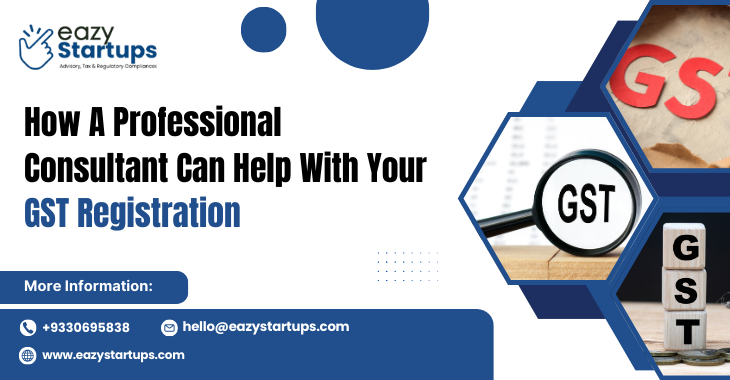
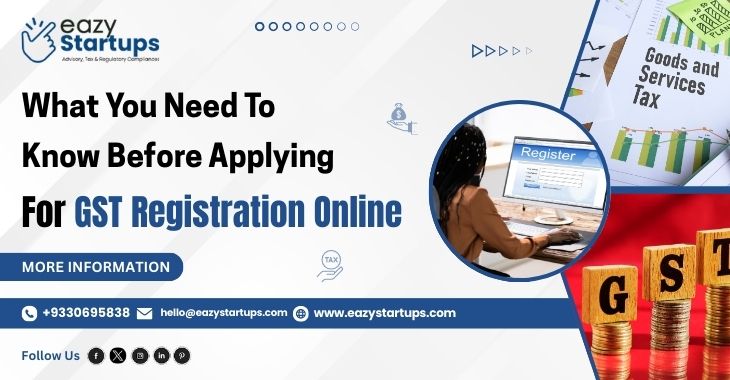
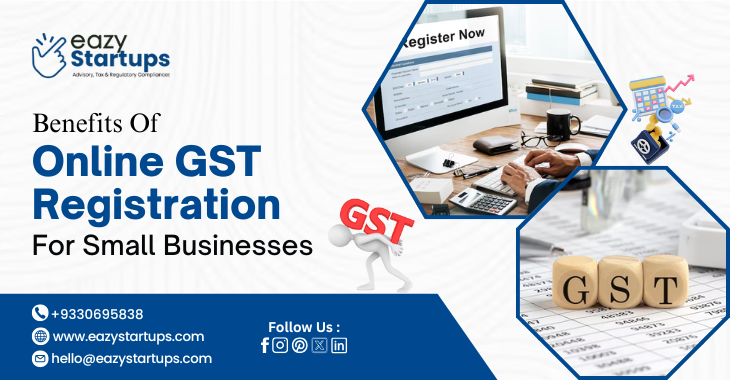

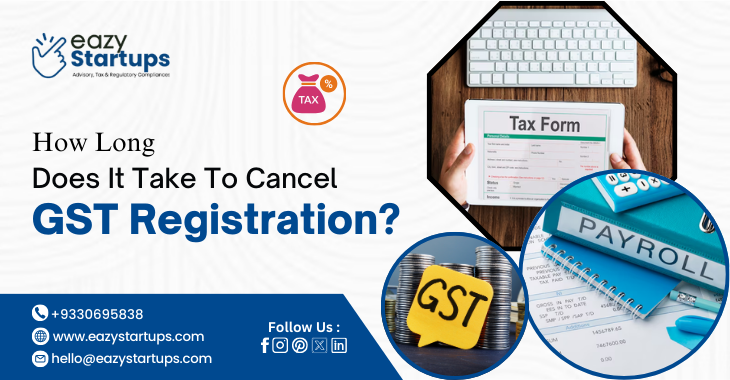

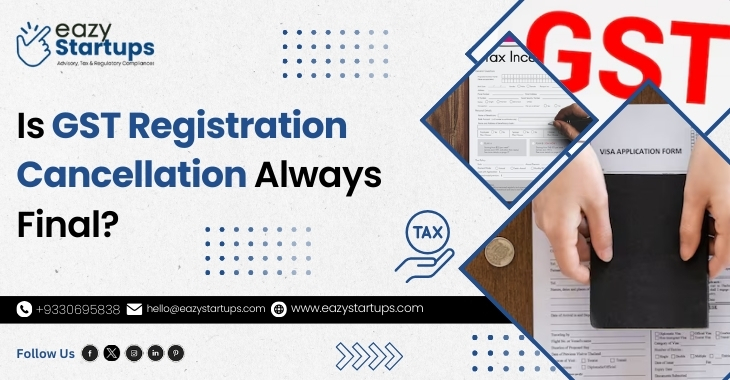
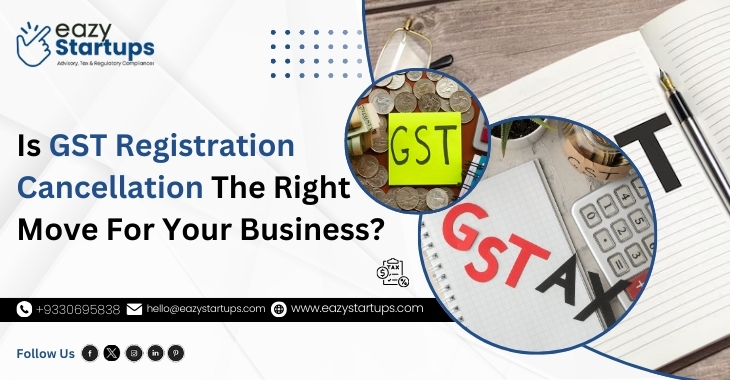

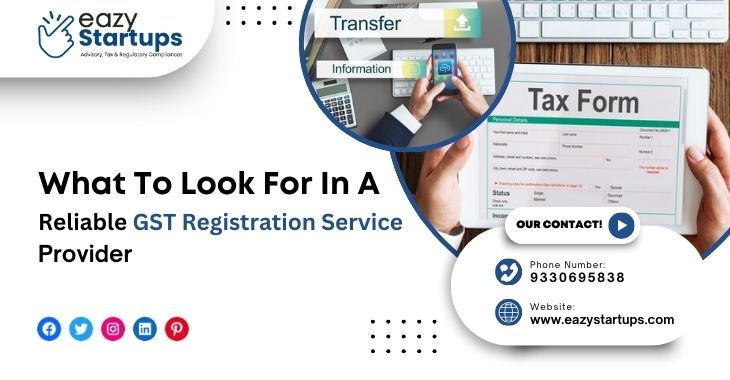
Recent Comments